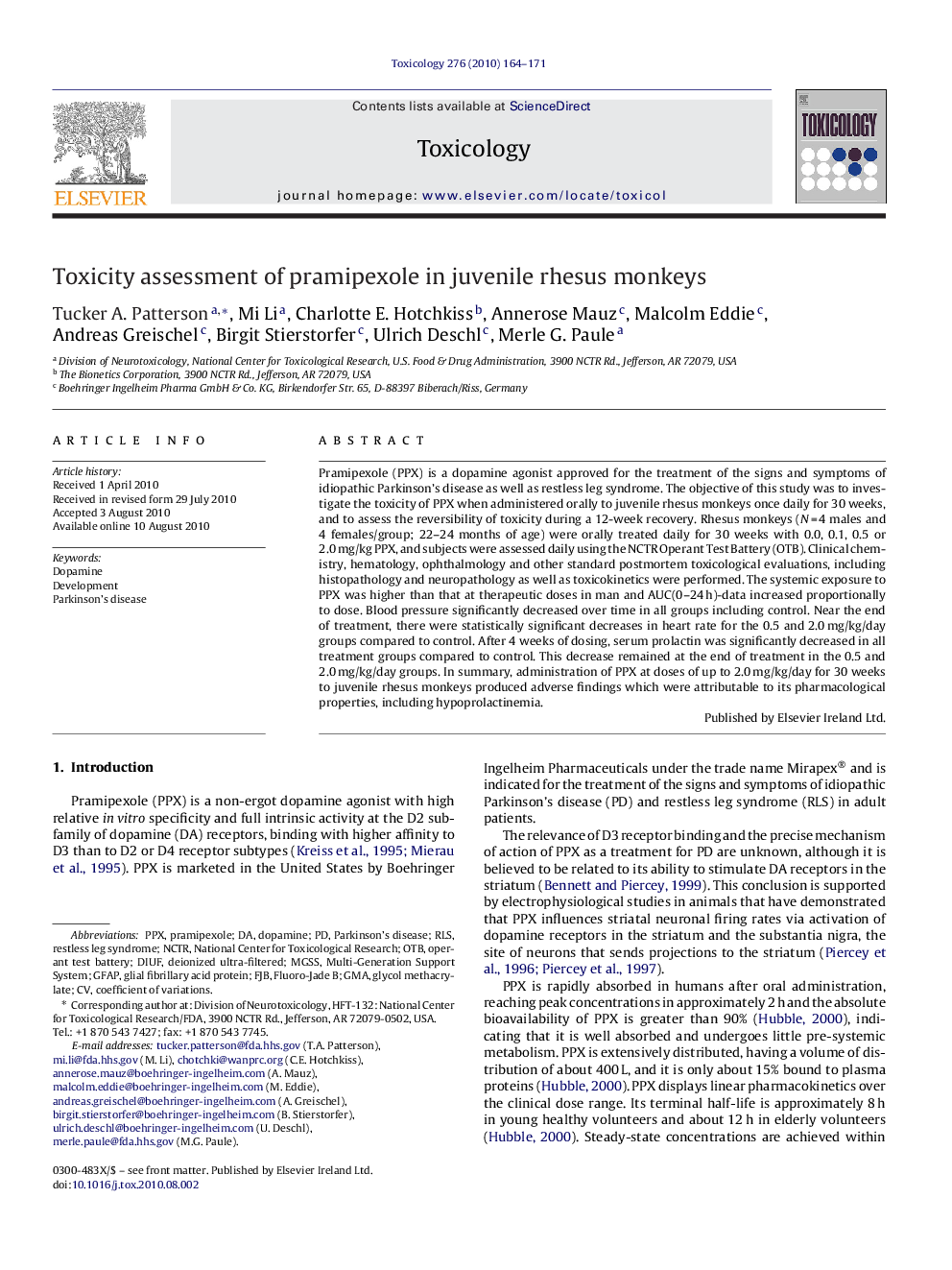| Article ID | Journal | Published Year | Pages | File Type |
|---|---|---|---|---|
| 5859673 | Toxicology | 2010 | 8 Pages |
Abstract
Pramipexole (PPX) is a dopamine agonist approved for the treatment of the signs and symptoms of idiopathic Parkinson's disease as well as restless leg syndrome. The objective of this study was to investigate the toxicity of PPX when administered orally to juvenile rhesus monkeys once daily for 30 weeks, and to assess the reversibility of toxicity during a 12-week recovery. Rhesus monkeys (NÂ =Â 4 males and 4 females/group; 22-24 months of age) were orally treated daily for 30 weeks with 0.0, 0.1, 0.5 or 2.0Â mg/kg PPX, and subjects were assessed daily using the NCTR Operant Test Battery (OTB). Clinical chemistry, hematology, ophthalmology and other standard postmortem toxicological evaluations, including histopathology and neuropathology as well as toxicokinetics were performed. The systemic exposure to PPX was higher than that at therapeutic doses in man and AUC(0-24Â h)-data increased proportionally to dose. Blood pressure significantly decreased over time in all groups including control. Near the end of treatment, there were statistically significant decreases in heart rate for the 0.5 and 2.0Â mg/kg/day groups compared to control. After 4 weeks of dosing, serum prolactin was significantly decreased in all treatment groups compared to control. This decrease remained at the end of treatment in the 0.5 and 2.0Â mg/kg/day groups. In summary, administration of PPX at doses of up to 2.0Â mg/kg/day for 30 weeks to juvenile rhesus monkeys produced adverse findings which were attributable to its pharmacological properties, including hypoprolactinemia.
Keywords
Related Topics
Life Sciences
Environmental Science
Health, Toxicology and Mutagenesis
Authors
Tucker A. Patterson, Mi Li, Charlotte E. Hotchkiss, Annerose Mauz, Malcolm Eddie, Andreas Greischel, Birgit Stierstorfer, Ulrich Deschl, Merle G. Paule,
